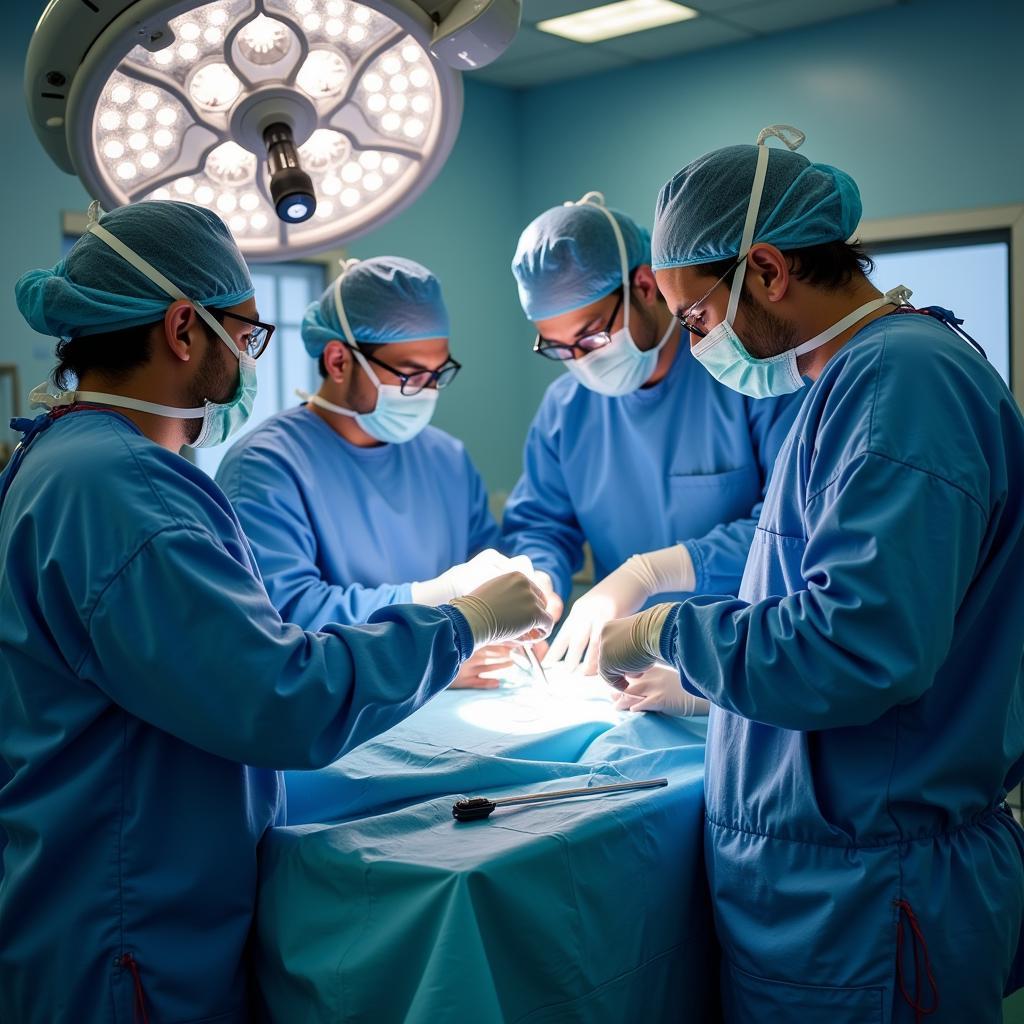A first unit hospital, sometimes referred to as a Level 1 trauma center, plays a vital role in the healthcare system by providing comprehensive and specialized care for critically injured patients. These hospitals are equipped with the latest technology and staffed by highly trained medical professionals, ensuring the best possible outcomes for patients with severe injuries.
What Makes a First Unit Hospital Unique?
Unlike typical hospitals, first unit hospitals are distinguished by their ability to handle the most complex cases, often involving multiple organ systems and requiring immediate, specialized interventions.
Here are key features that set first unit hospitals apart:
- 24/7 Trauma Team: These hospitals have a dedicated team of trauma surgeons, emergency physicians, nurses, and support staff available around the clock, ready to respond to any emergency.
- Advanced Technology and Resources: First unit hospitals are equipped with state-of-the-art operating rooms, imaging technology, and critical care units, enabling them to handle the most complex and severe injuries.
- Surgical Specialization: These hospitals have surgeons specializing in various disciplines, such as neurosurgery, orthopedic surgery, and cardiovascular surgery, ensuring patients receive specialized care for their specific injuries.
- Research and Education: First unit hospitals are often affiliated with medical schools and research institutions, contributing to advancements in trauma care and providing training opportunities for future healthcare professionals.
Why Choose a First Unit Hospital in an Emergency?
In critical situations, the choice of hospital can be a matter of life and death. Here’s why a first unit hospital should be your top priority:
- Rapid Response: The dedicated trauma team ensures immediate assessment and intervention, significantly improving the chances of survival and positive outcomes for critically injured patients.
- Comprehensive Care: From initial resuscitation and surgery to critical care and rehabilitation, first unit hospitals offer a full spectrum of services to address all aspects of trauma care.
- Specialized Expertise: The presence of highly trained specialists in various surgical and medical fields guarantees that patients receive the most appropriate and advanced care for their specific injuries.
 First Unit Hospital Surgical Team
First Unit Hospital Surgical Team
Finding a First Unit Hospital Near You
When a medical emergency arises, knowing the location of your nearest first unit hospital can be crucial. These hospitals are strategically located in urban and rural areas to provide timely access to specialized trauma care for a wider population.
You can locate a first unit hospital near you by:
- Contacting your local emergency services.
- Using online hospital finders or health resources.
- Checking with your primary care physician.
Remember, in a time-sensitive emergency, every minute counts. Having this information readily available can save valuable time and potentially save a life.
Conclusion
First unit hospitals play a critical role in providing life-saving care to critically injured patients. Their commitment to excellence, advanced technology, and specialized expertise make them the gold standard in trauma care. Understanding the crucial role of these hospitals and knowing how to locate one in your area can make a significant difference in an emergency situation.
FAQs About First Unit Hospitals
1. What is the difference between a first unit hospital and a regular hospital?
First unit hospitals are equipped and staffed to handle the most severe and complex traumatic injuries, offering specialized surgical services and critical care 24/7.
2. Are first unit hospitals only for adults?
No, many first unit hospitals also have dedicated pediatric trauma centers to provide specialized care for critically injured children.
3. Will my insurance cover treatment at a first unit hospital?
Insurance coverage for trauma care can vary, but most plans provide coverage for emergency medical services, including treatment at a first unit hospital. It’s always recommended to confirm with your insurance provider.
4. What should I do if I witness a serious accident?
First and foremost, ensure your safety. Then, immediately call emergency services and provide them with the exact location and details of the accident.
5. Can I request to be taken to a specific first unit hospital?
In an emergency, paramedics will transport you to the most appropriate facility based on the severity of your injuries and proximity to the hospital.
animal hospital roanoke rapids nc
If you require further information about our hospital or the services we provide, our team is available 24/7 to assist you. Please contact us at Phone Number: 02437655121, Email: [email protected] Or visit us at: No. 298 Cau Dien Street, Minh Khai, Bac Tu Liem, Hanoi, Vietnam.